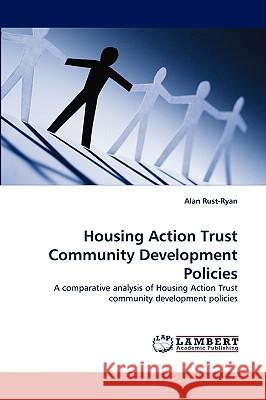Housing Action Trust Community Development Policies » książka
Housing Action Trust Community Development Policies
ISBN-13: 9783838352398 / Angielski / Miękka / 2010 / 184 str.
As finite-life organisations, Housing Action Trusts (HATs) offer a unique opportunity for the analysis of Conservative urban policy. They were established in 1988 by the Conservative government as the 'cutting edge' of urban policy. By the time the first HAT was established in Hull in 1991, the Conservative government had adopted a much more 'holistic' and 'welfarist' attitude to urban regeneration. Community involvement was seen to facilitate the regeneration process, an approach that led HATs to incorporate a range of social and economic policies into their development programmes. Although only six HATs were established, these employed a wide range of community development models, leading to varying success. An analysis of the different approaches offers valuable lessons for community development policy. The main lesson is that sustainability can only be achieved if organisations adopt a genuine participatory, 'bottom- up' approach to community development.
As finite-life organisations, Housing Action Trusts (HATs) offer a unique opportunity for the analysis of Conservative urban policy. They were established in 1988 by the Conservative government as the cutting edge of urban policy. By the time the first HAT was established in Hull in 1991, the Conservative government had adopted a much more holistic and welfarist attitude to urban regeneration. Community involvement was seen to facilitate the regeneration process, an approach that led HATs to incorporate a range of social and economic policies into their development programmes. Although only six HATs were established, these employed a wide range of community development models, leading to varying success. An analysis of the different approaches offers valuable lessons for community development policy. The main lesson is that sustainability can only be achieved if organisations adopt a genuine participatory, bottom- up approach to community development.











